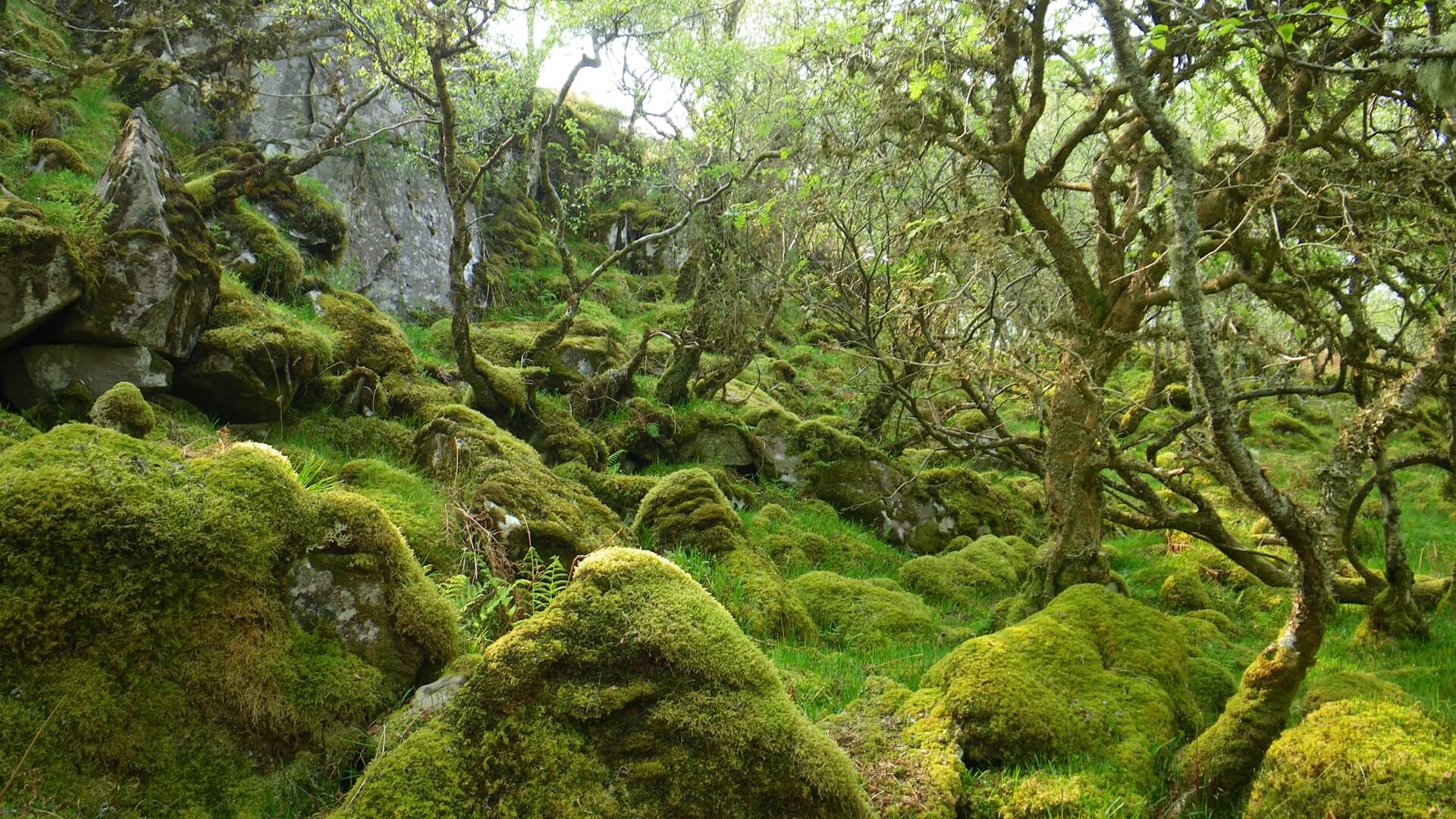


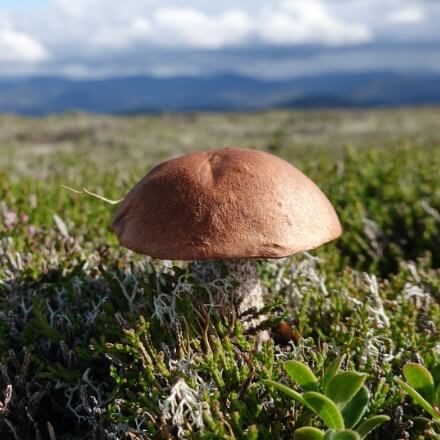
Image credits: Header image - Dave Lamacraft, image 3 - Andrea Britton
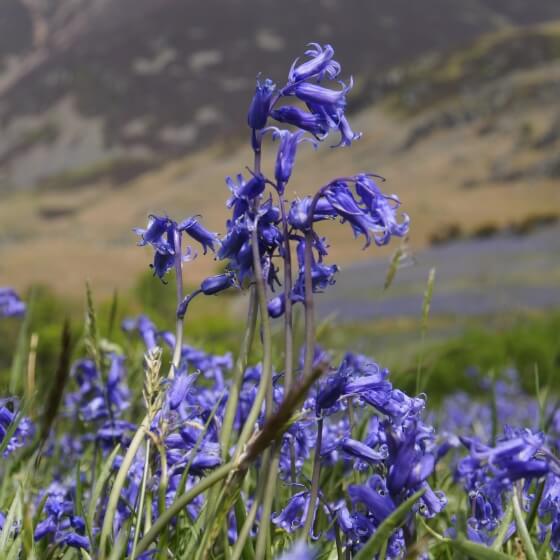
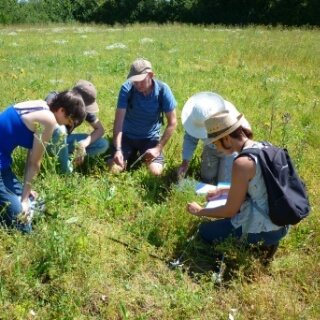
Image credits: Image 2 - Isobel Hall
Underpinning the health of our environment, wild plants and fungi are the foundation upon which we can help resolve the climate, ecological and societal challenges we face. Our work spans four strategic areas:
We work across the UK’s grasslands, mountains, woodlands, coasts, heathlands, arable farmland and peatlands to ensure our more common plant species do not become at risk.
We do this by protecting scarce and important species and habitats, such as hay meadows, chalk grassland, limestone pavement, grassland and blanket bog, and by advancing conservation initiatives and best practice so that plants and fungi everywhere can thrive.
You can read more about our protect and restore projects, which include a Juniper restoration initiative and conservation work in the Brecklands, Burnham Beeches and Braunton Burrows, in these case studies.
Volunteers working alongside Plantlife to monitor populations of target plants in the Brecklands recorded two significant finds during 2021/22 after discovering rare species at two new sites.
More than 400 hectares of species-rich grassland has been restored thanks to a hugely successful initiative which has engaged more than 12,000 people in vital work to protect valuable meadows across England.
Together with partners, we have helped to transform the fortunes of some of England’s most threatened wild plants, fungi and animals by increasing their numbers and placing them firmly back on the road to recovery.
Our vast and vital Munsary Peatlands Reserve in Caithness has continued to thrive this year with the discovery of record numbers of one of the UK’s most threatened plants.
The ambition of linking nature-rich hotspots which have been isolated by urban development took a step closer to becoming a reality during 2021/22 thanks to extensive research carried out by Plantlife and our partners.
Plantlife continued to influence conservation efforts on the national stage during 2021/22 after presenting the findings from a trial designed to safeguard species-rich grassland to the UK Government.
An ambitious project designed to prevent native Juniper from becoming extinct launched during 2021/22 when Plantlife joined forces with landowners, supported by Natural England, to revitalise the shrub.
Rare plant species are gradually starting to reappear in some of the UK’s most threatened habitats thanks to a pioneering partnership project which aims to conserve sand dunes across England and Wales.
We help people to achieve their goals for the natural world by fostering sparks of fascination and empowering communities to care for and protect the rich and varied environment around them. Our aim is to inspire an increasingly large and diverse audience to work with us to make a difference so that everywhere from stretches of golden sand to swathes of ancient woodland can be protected for the benefit of people and wildlife.
Our initiatives to connect people with their surroundings include projects to celebrate and protect green spaces in Bridgend, work on our nature reserves and our Magnificent Meadows Cymru partnership.
Our Green Links initiative is helping deepen the connection between communities and local green spaces for the benefit of both people and plants.
Our work with partners is successfully connecting people to Wales’ spectacular wildflower meadows while restoring these species-rich grasslands for the future.
The importance of our restoring and protecting the valuable wild plant habitats found in our nature reserves has been given additional focus this year.
The combined impact of 16 years of conservation management led to noticeable improvements at Ranscombe during 2021/22, with several threatened species recording their best ever years.
A long-running campaign which aims to transform our road verges into diverse wildlife havens by cutting less and cutting later has continued to pick up pace following the launch of a dedicated website.
Vital patches of species-rich grassland could be given greater protection against future development thanks to a successful citizen science project to map beautiful and highly-coloured waxcap fungi.
We are passionate about inspiring our supporters and the public to care for the precious natural habitats around them and arrange a variety of activities each year to give people the opportunity to get involved.
We are convinced that the complexity and urgency of the challenges our world faces can only be successfully addressed through partnership working. By using our skills and knowledge to accelerate plant and fungi conservation and collaborating with others over the next decade, we aim to harness the interest, ability and resources needed to drive positive change at speed.
We carried out a range of projects to help us progress this work during the year, including an extensive mapping initiative alongside volunteers in the Cairngorms and a ground-breaking nature recovery scheme at Bunloit in Scotland.
A grassland programme championed by Plantlife and its partners received the royal seal of approval during 2021/22 when it was selected for inclusion in a high-profile report backed by The former Prince of Wales.
The second year of the four-year Rare Plants and Wild Connections Project saw the coming together of mountain enthusiasts and cutting-edge science for the first time to help save rare mountain ecosystems.
The past 12 months have seen Plantlife work alongside Highlands Rewilding to play a key role in a ground-breaking nature recovery initiative which aims to create a network of biodiverse land across Scotland.
Together with our partners, we now have a better understanding of the action needed to safeguard some of our rarest and most threatened lichens and bryophytes.
Plantlife continued to lead the call for government action to tackle air pollution during 2021/22 due to the significant threat posed to our wild plants, lichens, fungi and their habitats.
Image credits: Header image - Alison Smith
Alongside our partners, we make sure that global strategies for nature, people and the climate include the restoration of native plant species and habitats so that we can ensure a healthy, plant-rich world in the future.
We work to make specialist knowledge, expertise and practical resources available for effective conservation action, and to campaign for an end to activities which threaten and destroy wild plant species and habitats.
This vital agenda has been supported during the year by our partnership work to save Scotland’s rainforests, as well as a project to set up a Global Important Plant Area Network to identify, protect and restore valuable habitats for wild plant and fungal diversity.
We continued to fly the flag for global action during the year after launching a collaborative campaign to place the conservation of wild plants and fungi at the heart of global biodiversity agreements.
Together with Woodland Trust Scotland, Plantlife relaunched the Alliance for Scotland’s Rainforest (ASR) to unite the efforts of each organisation working to save the habitat and increase the project’s impact.
Image credits: Header image - Anna Asatryan
Our ability to secure a world rich in plants and fungi is dependent on the generosity of grant givers, companies, institutions, individuals and thousands of our members. We continue to be inspired by the commitment and passion shown by so many in supporting our work.
Plantlife members continue to provide the funding that underpins so much of our work and we are delighted that more people than ever decided to join us during the year, growing our membership by 27%. It is indisputable that iconic plants and fungi are fundamental to the health of our environment, to how we mitigate and adapt to climate change and to our own wellbeing. We are also pleased to see a growing number of family members joining, helping us to reach the next generation of conservationists.
Our corporate partnerships have continued to grow this year. We now have four corporate patrons and 24 corporate members of Plantlife, as well as many other bespoke individual relationships. We remain dedicated to partnerships, and are working with our corporate partners to both help them meet their biodiversity goals and to support our wider work.
We were delighted that one of our corporate patrons, Formula Botanica, were able to continue their long-term support of our Juniper restoration project, providing £15,000 this year to help us continue this vital species recovery programme.
Formula Botanica has proudly supported Plantlife since 2014, because we want to help conserve wild plants and wild places. We are very grateful to Plantlife for undertaking such important work to raise the profile of plants, whilst celebrating their beauty and protecting their future. We encourage everyone to join us in supporting Plantlife so we can all secure a world rich in wild plants and fungi.
Lorraine Dallmeier, Formula Botanica CEO
We were delighted and privileged to receive gifts in wills worth over £700,000 in the year, providing vital funding to realise a number of our ambitions. Gifts left in wills to Plantlife enable us to have an ever-growing positive impact on the natural world around us. We are so thankful for those that chose to support our work in this way.
A connection to nature was vital to so many of us as we coped with the worry and uncertainty of the pandemic. It is heartening that so many people chose to retain that connection as we returned to busy lives. Having added a raft of digital conservation volunteering opportunities during the pandemic, we were delighted to be awarded nearly £100k from Digital Skills for Heritage (distributed by the National Lottery Heritage Fund, on behalf of the Department for Digital, Culture, Media & Sport). This will enable us to develop Virtual Volunteering Virtually Everywhere so that anybody - regardless of their physical ability, location or other commitments – can play a role in protecting and restoring our vital plants, fungi and natural spaces.
If you would like to know more about how you can support Plantlife and help us to continue our vital work for plants and fungi please contact Vickie Wood at vickie.wood@plantlife.org.uk or call our office on 01722 342730.
We would like to thank everyone that funds our work in different ways and acknowledge those listed below for their support during 2021/22.
We are once again highly thankful to everyone who remembered Plantlife in their will.
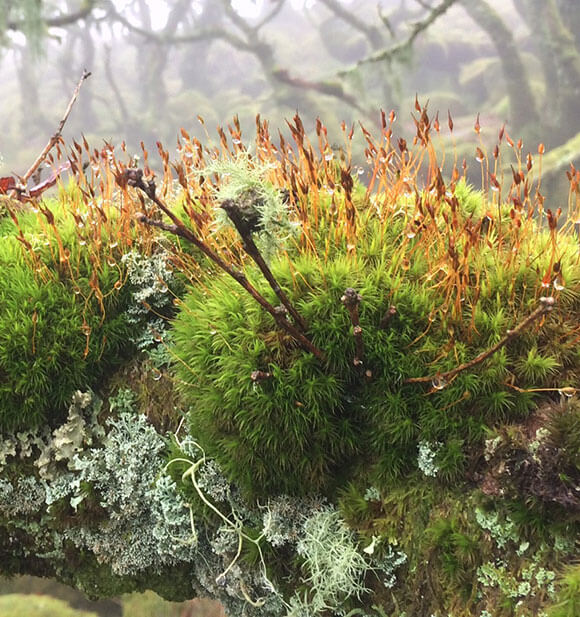
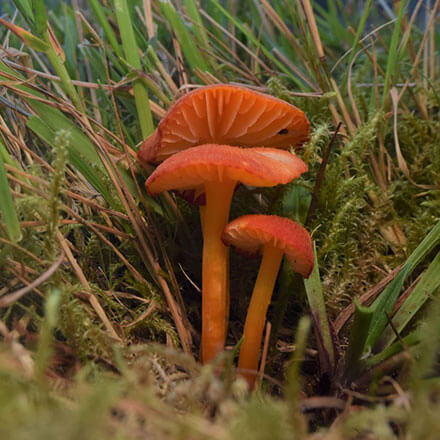
Image credits: Image 1 - Dave Lamacraft, image 2 - Lucia Chmurova
In 2021/22 we maintained our income level despite a difficult year externally. We saw increases in income generated by conservation activities, membership and donations, reinforcing the growing recognition of the importance of our work for plants and nature conservation. Legacy income was lower than the previous year but is variable by its nature. We are extremely grateful for everyone that contributed to help secure a world rich in plants and fungi.
| Total income | £4.5m | |
| Donations and legacies | £1.4m | (31%) |
| Conservation activities | £2.3m | (51%) |
| Membership income | £0.7m | (16%) |
| Investment income | £0.1m | (2%) |
The majority of our expenditure is always targeted directly on our conservation work. We increased our year on year spend on conservation activities across a diverse range of projects; from meadows in England and Wales, dunes to rainforest and working on threatened species. We also increased education and engagement activities including campaigning against peat extraction, nitrogen pollution and promoting grasslands.
We made strategic investments in growing our membership base through increased spend on fundraising and this has already seen membership grow by 27%. We also invested in developing robust support systems to ensure all administrative requirements are met as we implement our strategy to 2030. Our income performance and tight cost management enabled us to increase our unrestricted reserve; funds set aside to enhance our impact in future years whilst maintaining cash according to our reserves policy.
Thank you to everyone who contributed during a challenging year as we came out of the COVID-19 pandemic.
| Total expenditure | £4.3m | |
| Conservation activities | £2.98m | (69%) |
| People engagement, education and membership | £0.86m | (20%) |
| Fundraising | £0.45m | (10.5%) |
| Investment management costs | £0.02m | (0.5%) |
89p went on conservation and making change happen
11p was spent on fundraising and governance
we raised £9.78
Image credits: Image 1 - Dave Lamacraft
Plantlife is the international conservation charity working to secure a world rich in wild plants and fungi. It is funded by donations from its members and supporters, through grants and charitable trusts and through its pioneering land management advice and projects: www.plantlife.org.uk
For further information about Plantlife’s work, please contact: enquiries@plantlife.org.uk
Image credits: Background image - Dave Lamacraft